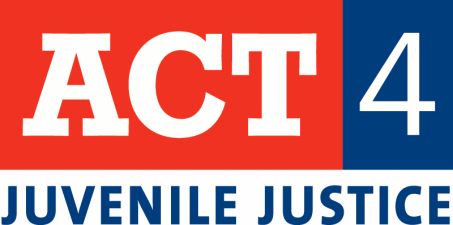Bipartisan consensus on strengthening federal law to reduce incarceration, make state juvenile justice systems more fair, improve public safety
 Youth, family and juvenile justice advocates endorse reintroduction of bill to support states efforts to improve their juvenile justice systems, protect kids, and build safer communities.
Youth, family and juvenile justice advocates endorse reintroduction of bill to support states efforts to improve their juvenile justice systems, protect kids, and build safer communities.
WASHINGTON, D.C. (April 30, 2015) - Juvenile justice advocates across the country applaud Senator Charles Grassley (R-IA) and Senator Sheldon Whitehouse (D-RI) for the re-introduction of the Juvenile Justice and Delinquency Prevention Reauthorization Act of 2015, to reauthorize and strengthen the Juvenile Justice Delinquency and Prevention Act of 1974 (JJDPA). The bill is very similar to legislation introduced last December in the last days of the 113th Congress.
Signed into law by President Gerald Ford on September 7, 1974, and most recently reauthorized in 2002, the JJDPA embodies a partnership between the federal government and the U.S. states, territories, and the District of Columbia to protect children and youth in the juvenile and criminal justice system, to effectively address high-risk and delinquent behavior and to improve community safety.
More than seven years overdue for reauthorization, the JJDPA is the only federal statute that sets out national standards for the custody and care of youth in the juvenile justice system and provides direction and support for state juvenile justice system improvements. The JJDPA also supports programs and practices that have significantly contributed to the reduction of delinquency.
"We are grateful for Senator Grassley's and Senator Whitehouse's continued commitment to strengthening protections for our young people who are involved with the juvenile justice system," said Marie Williams, Co-Chair of ACT4JJ and Executive Director of the Coalition for Juvenile Justice. "As expected, the new legislation tightens the accountability of states who receive funding under the Act and helps ensure that young people receive the protections, services, and supports they need."
Despite a continuing decline in youth delinquency, more than 60,000 young people are held in detention centers awaiting trial or confined by the courts in juvenile facilities in the U.S. For these confined youth, and the many more kids at-risk of involvement in the justice system, the JJDPA and programs it supports are critical. Youth who are locked up are separated from their families and many witness violence. These youth struggle when they get out, trying to complete high school, get jobs, housing, or go to college. Aside from the human toll, the financial costs of maintaining large secure facilities have also made it vital to rethink juvenile justice in every community.
"The bill brings the JJDPA in line with what research tells us and states know-that incarcerating kids, particularly status offenders, and locking kids up with adults causes harm and does not reduce crime and delinquency," said Marcy Mistrett, Co-Chair of ACT4JJ and Chief Executive Officer of the Campaign for Youth Justice. "This bill reaffirms a national commitment to the rehabilitative purpose of the juvenile justice system; one that supports developmentally appropriate practices that treat as many youth as possible in their communities. It is both cost effective and the morally right thing to do."
Key provisions in include:
- Phase-out of the Loophole that Allows Status Offenders to Be Locked Up
- While current federal law prohibits detaining youth for status offenses (like truancy and running away from home), youth can be ordered by a court not to do these things as a condition of release through a court order. Many youth are subsequently detained for technical violations of such a valid court order. Many states have already prohibited use of this exception - known as the VCO exception - in light of research that shows it is harmful to youth development and is costly, especially when compared to community-based alternatives. The bill calls on all states to phase out use of the VCO exception over the next three years.
- Strengthening of Protections to Keep Youth out of Adult Jails and Prisons
- Research shows youth confined in adult jails and lock-ups are more likely to re-offend upon release and, while confined, are at pronounced high risk of suffering assault and committing suicide. The bill extends the jail removal and sight and sound core protections to keep youth awaiting trial in criminal court out of adult lock-ups and ensures sight and sound separation from adult inmates in the limited circumstances where they are held in adult facilities.
- Supports for State Efforts to Reduce Racial and Ethnic Disparities
- The bill gives clear direction to states and localities to plan and implement data-driven approaches to ensure fairness and reduce racial and ethnic disparities, to set measurable objectives for reduction of disparities in the system, and to publicly report such efforts.
For more information go to www.ACT4JJ.org.
###
About Act 4 Juvenile Justice - Act 4 Juvenile Justice (ACT4JJ) is a campaign of the National Juvenile Justice and Delinquency Prevention Coalition (NJJDPC), which represents over 80 national organizations who work on youth development and juvenile justice issues. ACT4JJ is composed of juvenile justice, child welfare and youth development organizations advocating for the reauthorization of the Juvenile Justice and Delinquency Prevention Act (JJDPA) and increased federal funding for juvenile justice programs and services.

